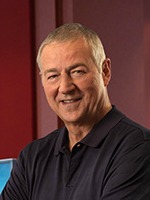 Ex-Elan ($ELN) CEO Kelly Martin and his chums have persuaded some very rich people to back Malin's IPO. The list of investors in the IPO--which surpassed expectations to raise €330 million ($357 million)--includes the fund set up by SAS founder Jim Goodnight and Canada's wealthy and influential Tory family.
Ex-Elan ($ELN) CEO Kelly Martin and his chums have persuaded some very rich people to back Malin's IPO. The list of investors in the IPO--which surpassed expectations to raise €330 million ($357 million)--includes the fund set up by SAS founder Jim Goodnight and Canada's wealthy and influential Tory family.
 |
| Jim Goodnight |
Reedy Creek Investments, the fund set up by Goodnight, has taken a 13.9% stake in Malin, making it the newly public company's third-largest shareholder. Since being founded by Goodnight--whose worth is estimated by Forbes at $7 billion--Reedy Creek has primarily been known for its real estate investments. Attempts to branch out into other areas have brought mixed results. In 2012, Connexion, a fiber-optic network business in which Reedy Creek invested $453 million, liquidated.
Biotech is well outside of Reedy Creek's traditional areas of focus, but the investor nonetheless feels confident enough to commit a significant sum of money to Malin. Only the Ireland Strategic Investment Fund and Neil Woodford's organization have taken a bigger stake in Malin than Reedy Creek. Woodford Investment Management tops the list of investors with a 19.5% stake in Malin. Sovereign wealth fund the UK Pension Protection Fund (PPF) and insurer Aviva round out the top 5.
The Irish Independent reports the UK PPF is one of three sovereign wealth funds to back Malin's IPO. Former CEO of Siemens Peter Loscher has also taken a stake. The willingness of Europe-based organizations and individuals to back Malin suggests there is an interest in vehicles that expose investors to early-stage biotech without also burdening them with the headache of predicting which startups are likely to boom or bust.
Malin is offering to handle these decisions on behalf of investors and tie its fees to its success rate. If management can generate compound annual returns of 11% after three years, they will receive an extra 6% of the equity. Hitting 17.5% growth after five years would see the figure rise to 12.5%. A pay-for-performance model is also being used by Woodford's new patient capital fund, which will only claim fees for consistently achieving 10% annual growth.
- read the Independent's piece
- check out Malin's filing